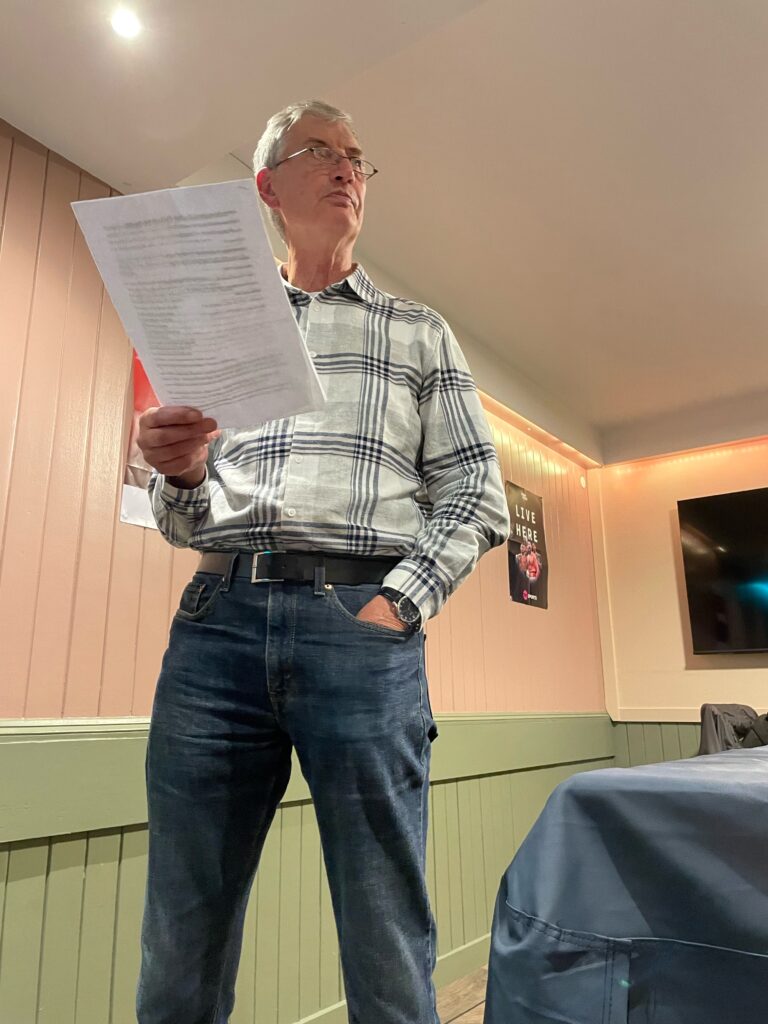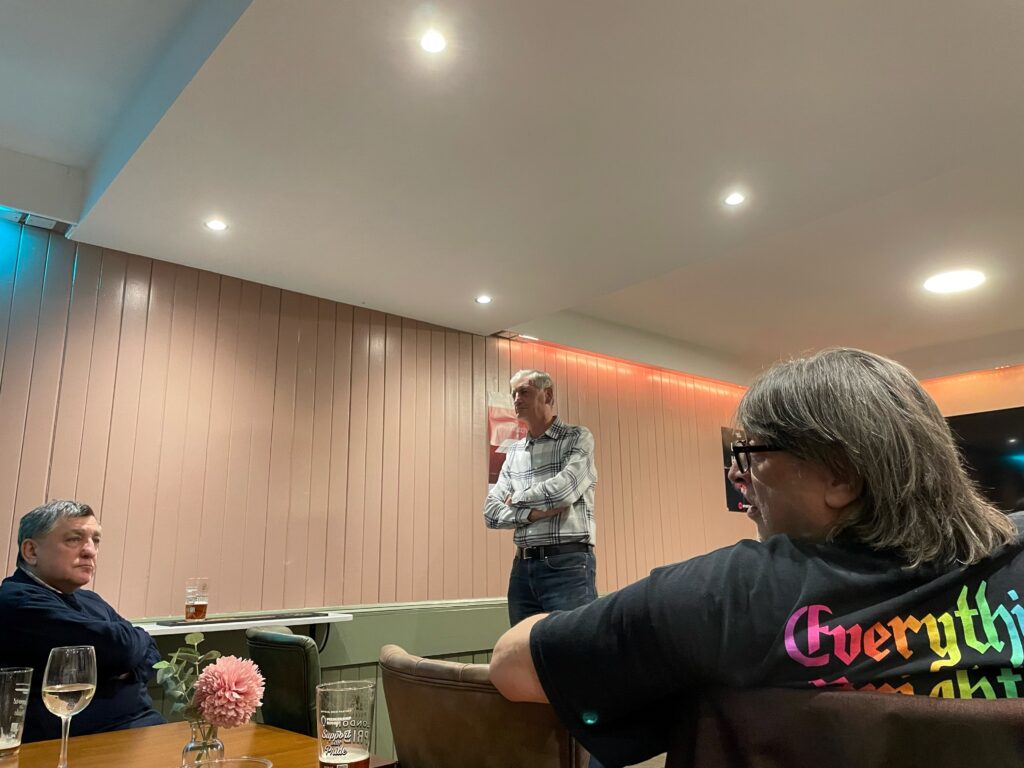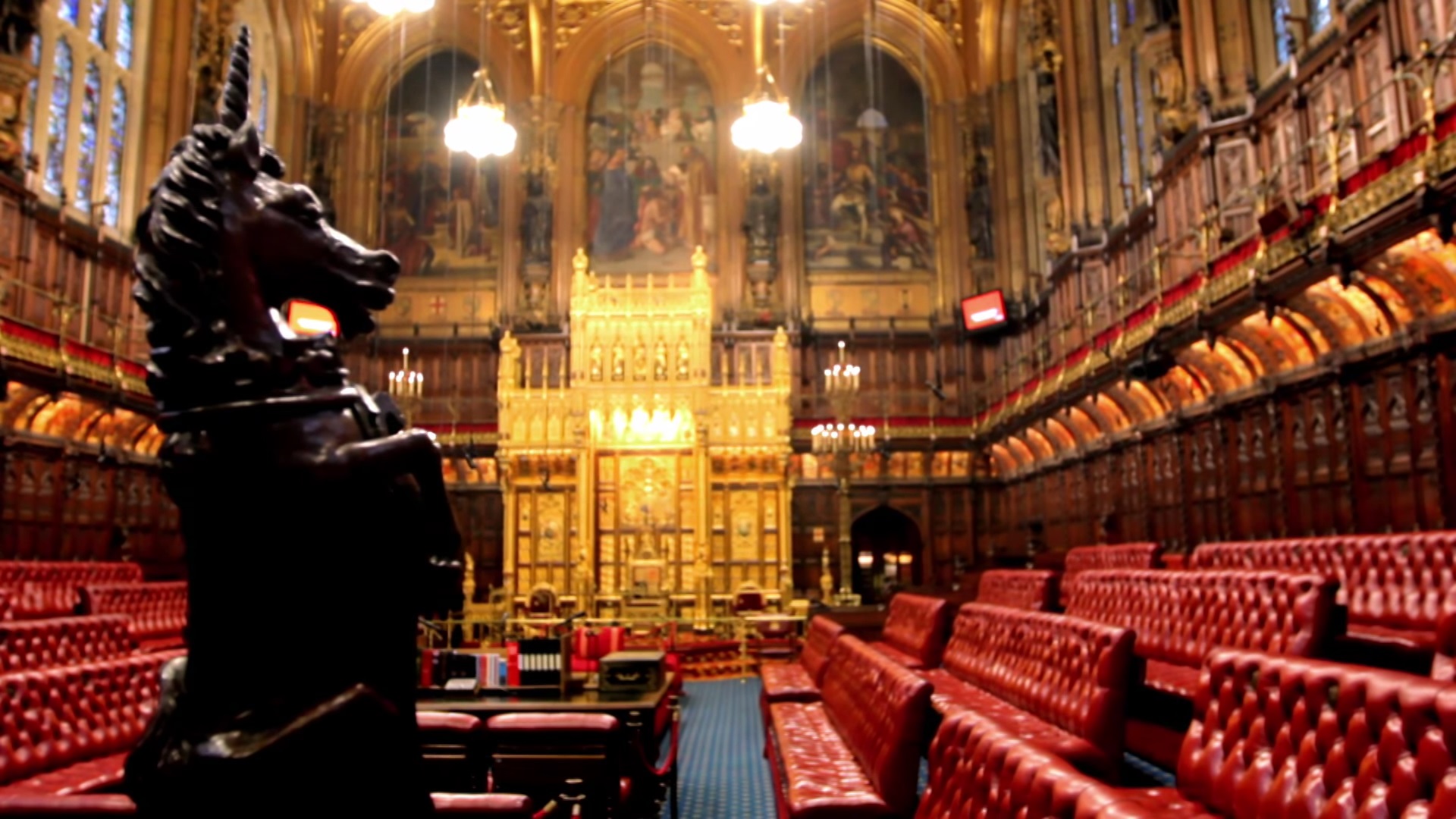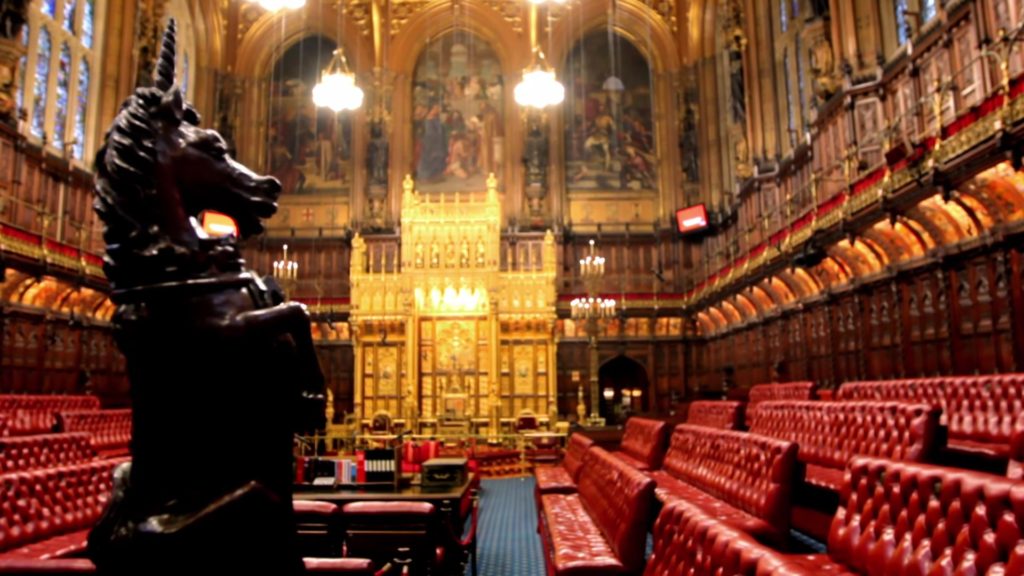In November we held our 3rd My tuppenceworth event giving you the opportunity to speak to those assembled on an issue that really matters to you.
Crispin Williams spoke on House of Lords Reform and his speech is below.
“it is the only upper house of any parliament in the world to be bigger than its lower house; and it is the world’s second largest legislative chamber after the National People’s Congress of China”
There is fairly general agreement that the House of Lords is in need of reform. It currently has more members (785) than there are physical seats in the chamber; it is the only upper house of any parliament in the world to be bigger than its lower house; and it is the world’s second largest legislative chamber after the National People’s Congress of China. Many peers either rarely attend or just turn up to collect their attendance allowance.
Furthermore, there has been a tendency in recent years to make an increasing number of political appointments to the Lords, often by ‘promoting’ MPs who have lost their seats or rewarding party advisers.
“even if affiliated to a political party, Lords may express personal views without fear of losing their seat and, in fact, often speak out against party lines. I cannot express too strongly the importance of this independence from the politics of the lower chamber”
The purpose of the House of Lords is – or at least should be – as a scrutinising and revising chamber that looks dispassionately at legislation passed by the Commons, often hurriedly and for political expediency, to ensure that it is logical, workable, and fair. This should be done without the constraints of party whips. The growth in the number of overtly political Lords threatens this independence. Nevertheless, even if affiliated to a political party, Lords may express personal views without fear of losing their seat and, in fact, often speak out against party lines. I cannot express too strongly the importance of this independence from the politics of the lower chamber.
I am, therefore, vehemently against an elected House. This would almost certainly just reflect the composition of the Commons, making the Lords even more political and it would inevitably lead to legislation passed by the Commons being nodded through at the behest of the whips. In short, an elected Lords would negate the very reasons for its existence.
“I would argue that its role as a scrutinising and moderating body is essential. To achieve this role satisfactorily, the Lords should be populated with the ‘great and the good’”
There are those who would welcome the abolition of the Lords altogether, but I would argue that its role as a scrutinising and moderating body is essential. To achieve this role satisfactorily, the Lords should be populated with the ‘great and the good’, i.e., people with experience, expertise and intelligence, not just failed MPs, party donors and spotty, brown-nosing ex-SPADS (special advisers).
“This committee would be composed of people in leading positions in public life but nominated by the position they hold, not by personality. Thus, the holders of specific posts would automatically have a say in selection, whoever they may be”
My suggestion is for members of the House of Lords to be selected by an appointments committee. This committee would be composed of people in leading positions in public life but nominated by the position they hold, not by personality. Thus, the holders of specific posts would automatically have a say in selection, whoever they may be.
Below I give some examples of the kind of positions that might comprise the appointment committee. As I say, these are just examples and there can be much further debate as to the final choice.
- The Prime Minister and, say, two leading cabinet positions
- The Leader of the Opposition and one other Shadow Cabinet member
- The Leader of any other party with a given number of seats in the Commons
- The Speaker of the House of Commons
- The Speaker of the House of Lords
- The First Minister of Scotland
- The First Minister of Wales
- The Mayor of London
- The Archbishop of Canterbury
- The Prince of Wales
- The Governor of the Bank of England
- The General Secretary of the TUC
- The Director-General of the CBI
- The Chair of the Commission for Racial Equality
- The Chair of the National Federation of Women’s Institutes
Each of these committee members would be free to put forward nominations for seats in the House of Lords. Nominations could also come from the public via a mechanism whereby anyone reaching a particular threshold would be put forward to the appointments committee.
This would lead to a House of high-quality people being elected by a committee with balanced views. Clearly, some of the above might also be Lords themselves.
This revised House of Lords would comprise 250 members, re-appointed on a staggered 10-year basis, with no restriction on the number of times a member could be re-appointed.


Main Photo by UK Parliament – https://www.youtube.com/watch?v=_sLZBWcPklk @ 01:06, CC BY 3.0, https://commons.wikimedia.org/w/index.php?curid=56761114





